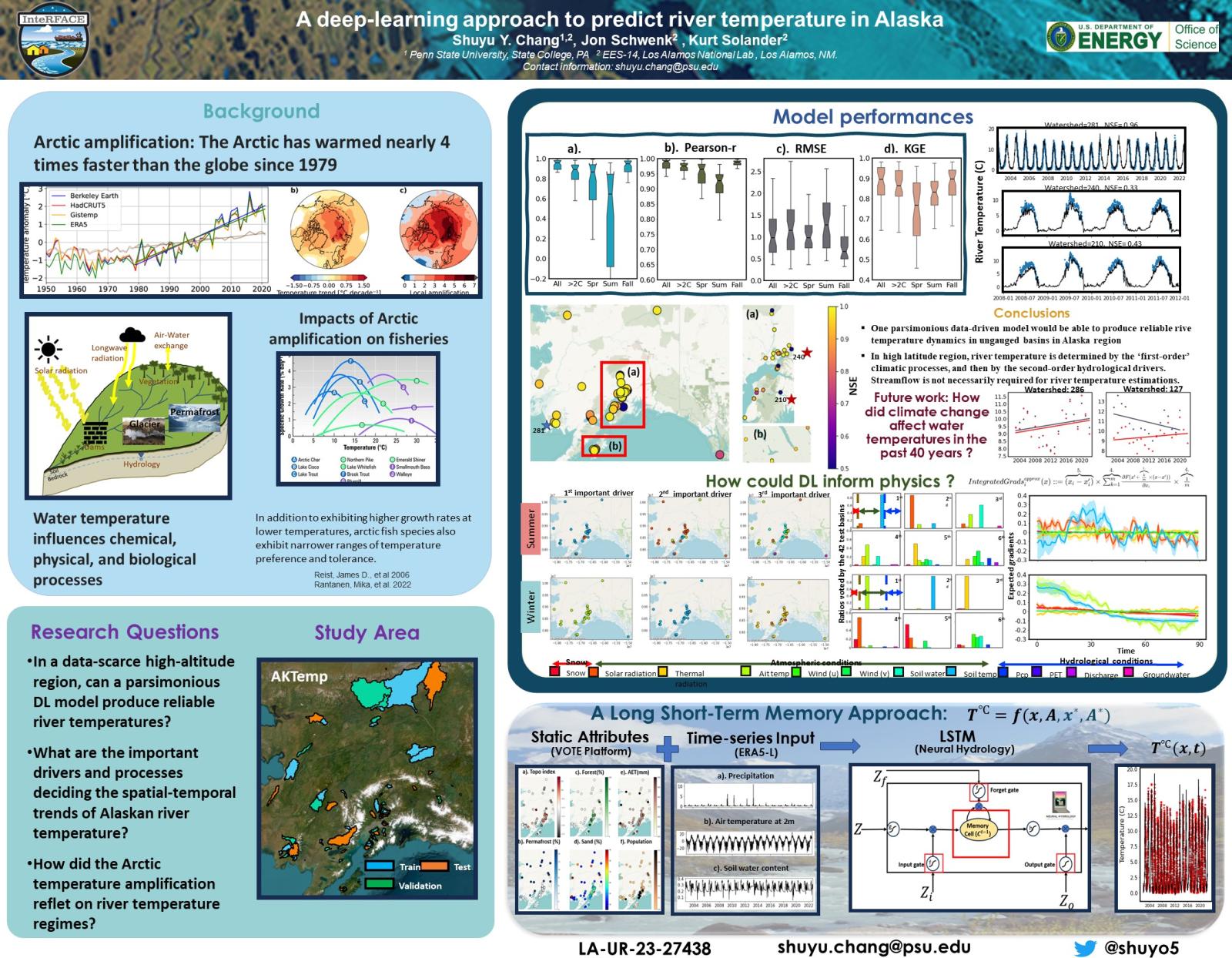09) A deep-learning approach to predict river temperature in Alaska
 Recent studies suggested the Arctic has warmed four times faster than the rest of the globe since 1979, which is deemed the Arctic amplification phenomenon. Fisheries in this region are thus potentially more vulnerable to water temperature regime shifts, with narrower range of preference and tolerance of temperature. However, how warming air temperature will manifest in rivers and streams and the primary drivers of these changes remains poorly understood due to the lack of robust measurements combined with the complex interplay of glacial melt and permafrost thaw that controls the river temperature dynamics of the region. To address this shortcoming, we develop a Long-short Term Memory (LSTM) model to reconstruct reliable river temperature time series over a high-latitude, data-sparce region of Alaska. With this model, we were able to (1) better our understanding regarding the major physical processes and drivers in controlling river temperature dynamics; (2) unravel the spatial-temporal patterns of river temperature regime shifts under a changing climate.
Recent studies suggested the Arctic has warmed four times faster than the rest of the globe since 1979, which is deemed the Arctic amplification phenomenon. Fisheries in this region are thus potentially more vulnerable to water temperature regime shifts, with narrower range of preference and tolerance of temperature. However, how warming air temperature will manifest in rivers and streams and the primary drivers of these changes remains poorly understood due to the lack of robust measurements combined with the complex interplay of glacial melt and permafrost thaw that controls the river temperature dynamics of the region. To address this shortcoming, we develop a Long-short Term Memory (LSTM) model to reconstruct reliable river temperature time series over a high-latitude, data-sparce region of Alaska. With this model, we were able to (1) better our understanding regarding the major physical processes and drivers in controlling river temperature dynamics; (2) unravel the spatial-temporal patterns of river temperature regime shifts under a changing climate.
